Mariana Velichkova’s interview with the founder of Satvatove Institute David Wolf, PhD
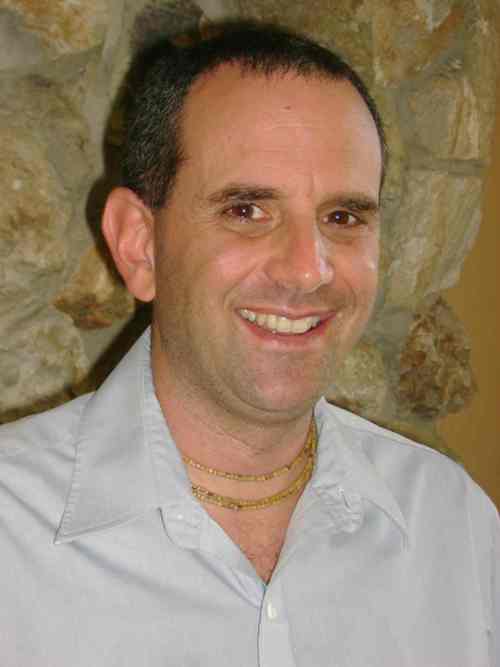
David Wolf
What does the name Satvatove mean?
“Satvatove” comes from the word “sattva”, from the ancient Sanskrit language, and “tov”, from Biblical Hebrew. Both “sattva” and “tov” refer to goodness, or enlightenment. So, through the programs of Satvatove Institute we endeavor to bring goodness and enlightenment to the world, to elevate and enhance spiritual consciousness.
How did you come up with the idea of creating the Satvatove Institute?
Beginning in the late 1970s I was involved in the human potential movement. Early in the 1980s I received training in short-term and crisis-intervention counseling, and shortly thereafter became the director of the counselor training program at an agency in Pennsylvania. Also at that time I began to explore and practice bhakti-yoga, a personal spiritual practice grounded in a rigorous philosophical framework. The seeds of the ideas for Satvatove Institute were formed in the early and mid-eighties, as I conceived of integrating powerful transformational methodologies with high-level communication principles and skills, founded in the precepts and practices of personalist spirituality.
In the mid-1990s I began developing and conducting workshops which were the forerunners of the current Satvatove programs, and in 1999 in England I conducted the first Foundational Seminar. I actually came up with the name Satvatove in 2001. Marie Glasheen participated in the Foundational Seminar in 2000, and soon thereafter began to organize Satvatove courses and since then has been majorly instrumental in the development of Satvatove Institute.
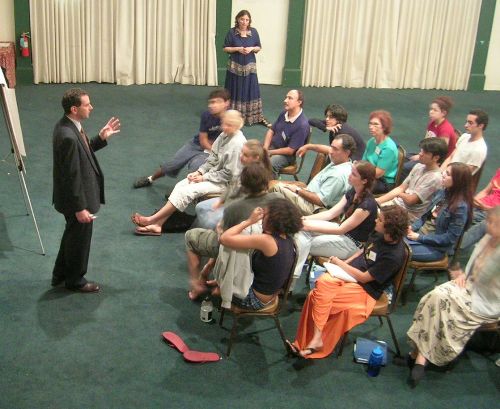
What distinguishes your organization from the similar ones working in the same field?
Based on my experience for more than 30 years in areas such as social and mental health services, personal transformation, and leadership training, Satvatove’s programs are unique in their integration of spiritual wisdom, transformative communication, and profoundly potent approaches to experiential discovery.
What are the biggest challenges faced by modern people regarding their spiritual and mental well-being?
My perspective is that a big challenge is lack of realization that we are spiritual entities. In the words of Teilhard de Chardin, “We are not human beings having a spiritual experience; we are spiritual beings having a human experience.” To the extent that we identify ourselves with material designations, identities related to the body, we will be challenged in our spiritual and mental well-being. I drive a Toyota. Naturally I care for the car, keeping it tuned up and filled with the right fluids. But if I think that my own thirst is quenched when I fill the car with gasoline, I am under an illusion and will not be satisfied. I do not believe that I am Japanese just because the car was made in Japan, any more than I would believe myself to be German if I were driving a Mercedes Benz. Clearly this is a foolish idea.
Yet if we identify with designations that apply to the temporary body (the vehicle) rather than the spiritual self, we are making the same mistake. Just as the owner of the car changes to another car when the old one is finished, our spirit changes to another body at the time of death. Recognizing and attending to material designations or roles may serve the spiritual journey, just as an automobile can facilitate travel to the destination. But misidentification of the self with these designations is a diversion from our pursuit of spiritual understanding. It often leads to many unhealthy isms, such as nationalism, sexism and racism, and to various mental and emotional imbalances.
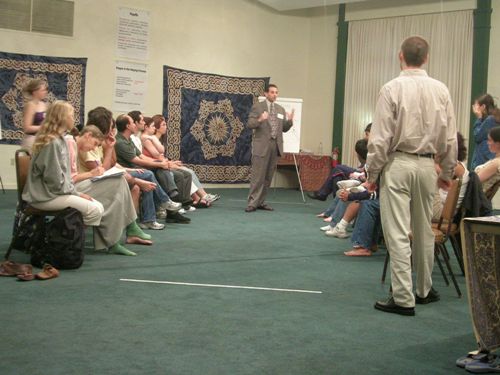
What are the main principles of successful relationships?
Satvatove Institute (www.Satvatove.com) has produced a CD entitled 7 Principles for Fulfilling Relationships. These principles include:
Responsibility – Assuming 100% responsibility for our experience in and contribution to our relationship(s).
Clarity – knowing what we want.
Integrity – An essential element of integrity is that our word is true. We keep our agreements, do what we say we’re going to do. This supports a culture of trust that facilitates sacred space between people.
Win/Win – Commitment to a satisfying outcome for all persons involved in relational interactions.
Empathy – Dedication to understand the other’s perspective and emotions, and to developing the capacity and skill set to facilitate such empathic understanding.
Authenticity – This involves being willing to risk disapproval. Even if, through putting up facades, we apparently get what we want, such as appreciation, approval, and attention, it’s not satisfying, because we’re not genuinely giving ourselves to the relationship. With the courage to share ourselves authentically, whatever comes our way, whether it be love, caring, affection, or disapproval, we know it is actually for us, for who we are. This is a foundation life-enriching relations that foster spiritual growth and self-realization.
Spirit of Discovery – This entails regarding each situation in a relationship as an opportunity for self-development, for refining and strengthening our character, and for discovering ourselves and the other at a more profound level. To the extent that we are able to regard especially those characteristics of the other person that we experience as disturbing or irritating, as chances for personal growth, we set ourselves up for a life of gratitude, growth and fulfillment.
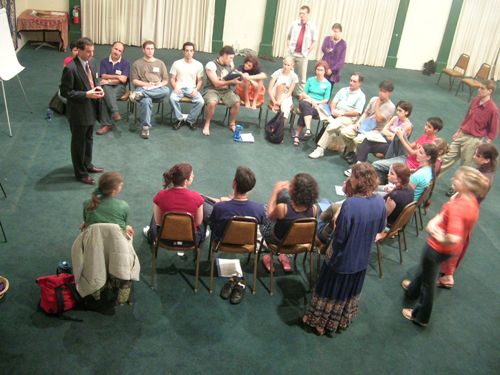
What is the most essential quality we need to possess as to improve ourselves?
We need to have the courage to know ourselves, to distinguish between that which is genuine, and that which is inauthentic. On that basis we naturally live a life that flows from the essence of our being, with fulfillment and abundance as organic results.
What are the consequences from compromising our desires and personalities?
In considering your question I am considering the importance to be able to identify the various dimensions of ourselves from which desires flow. For example, there are sensual, emotional, intellectual, and spiritual desires. Capacity to differentiate which constituent of our being is desiring is important in the process of self-realization. Often it is necessary to voluntarily give up, for example, sensual desires in order to achieve fulfillment on a more subtle platform.
Similarly, sometimes by being ready to not indulge in desires for, say, approval, fame, or adoration, we get to experience sublime spiritual satisfaction. In this way we cultivate our original spiritual personality, through a process of conscious living and self-awareness. From my perspective, conscious awareness is key. With such awareness of our desires, aspirations, perspectives and aspects of our personalities, we get to choose what to express at what time, and in what manner.
How can we discover and realize out full potential as human beings?
I appreciate the metaphor of a “1” giving value to a string of zeros. If we have a string of 20 zeros, what’s it worth? Zero. These zeros might represent, for example, economic development, or a strong body. If we place a 1 in front of the zeros, the zeros assume value. So, the “1” represents spiritual, or self, realization. Cultivating such self-awareness and spiritual enrichment serves as a platform for all life areas to be vitalized and imbued with meaning.
What is your advice to our readers?
I ask readers to imagine that you’re looking at a photo of yourself from when you were five years old. When you look at this photo, do you say “Who is that stranger?” No, you say that’s me, when I was 5. We know from science that there’s not one atom in your body now that was there when you were 5. Still, we say “That’s me…” There is some constant identity that I call David, or Joanne, or Frederick….This indicates that our identity is something non-material, separate from the physical.
I ask readers to live in the question- What is nourishment for the non-material self, that which remains as the body changes?
I encourage readers to sincerely cultivate empathy for everyone they encounter in each sphere for their lives. And, while empathizing with each person in their pain, satisfaction, fear, etc., develop a capacity to see and relate to the spiritual spark within, others and yourself.
Biography:
Dr. David Wolf is the founder of Satvatove Institute and Director of the Satvatove School of Transformative Coaching. Since the early 1980s David has conducted experiential seminars in more than a dozen countries. He has facilitated thousands of people to cultivate high-level communication, master principles of integrity-based leadership, and engage in courageous introspection towards fulfillment and self-realization.
David developed the Vedic Personality Inventory, a personality assessment tool founded in ancient Indian psychology, and is a leading scholar in Eastern-oriented personality studies and the effects of mantra meditation on well-being. In 1998 he founded an international child protection agency and served as its director for six years. David has extensive experience with individual and group coaching, as well as a variety of social service roles. He is a sought-after teacher and speaker, and the author of Relationships That Work: The Power of Conscious Living – How Transformative Communication Can Change Your Life.
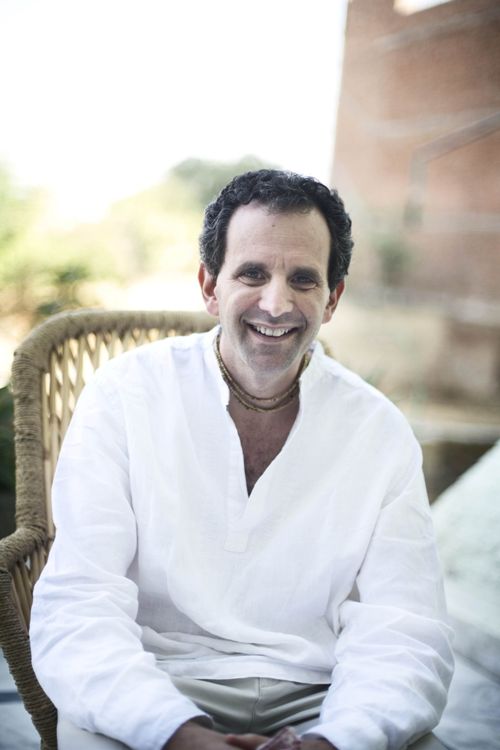











4 comments so far ↓
Nobody has commented yet. Be the first!
Comment